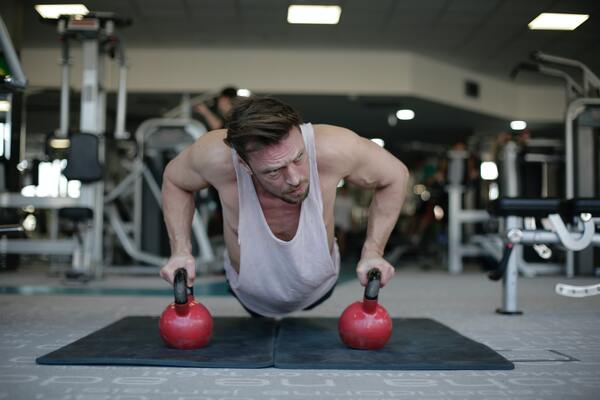This article will look at setting goals to help you build self-confidence.
Improvements in your self-confidence will help you to overcome other problems in life easier. With improved self-confidence, you can reach your other life goals easier.
When you set out to achieve self-improvement goals such as building self-confidence you need to be prepared to face a few roadblocks on the way.
You should train your mind to become resilient when setbacks occur. If you give up when things go wrong, you will never meet your goals.
What is self-confidence?
When you have increased self-confidence, you can trust your judgments and abilities.
Self-confidence allows you to be realistic about your strengths and weaknesses.
Confident people don’t pretend to be good at everything, but they know they have the opportunity to learn, and this means they are ready to try new things.
They do this because they know who they are, what they can do, and understand what they need to improve.
How self-confidence is linked to fulfilment
Confidence does not automatically lead to fulfilment. However, finding fulfilment in life will help improve your self-confidence.
Whether you seek meaning, passion, or fulfilment in life, it is important to be aware that you are the person who makes these things happen for yourself.
Remember that fulfilment is not something provided by other people or things.
The good news is that it is not as hard to achieve as you may think starting out.
To create purpose in life:
- Be helpful in a way that has a positive impact. You can do this by using your strengths to benefit others.
- Establishing a deep connection with others.
- Keeping your life in line with the values you hold dear.
When you do this, you feel greater purpose and fulfilment in life. Improvements in your fulfilment will increase your self-confidence.
Developing self-confidence
Developing self-confidence is not easy, and it takes time. But the good news is that it’s very similar to the muscles you work out in the gym.
Your confidence is mostly like a muscle in your body. It gets more powerful with time and use. You can help grow this muscle by taking action to reach your goals and overcoming your fears.
Self-confidence develops by gaining new experiences and through daily self-acceptance and self-love.
Setting Goals for Building More Confidence
People often set for failure by setting goals that are unrealistic, too vague, and elusive.
Consider a goal like “I need to improve my confidence.”
This statement lacks direction and is ambiguous. Such a vague goal becomes unattainable because it is too broad and there is no direction to aim towards.
What happens when you set vague goals?
With time, you tend to forget about the goal that you have set if it is too difficult to master.
With such goals, there are no indications of what you want to achieve, how, and when. You will likely give up on your idea before you even start working on it.
But when you set specific goals, you will find that you get better results because you have a realistic definition of what you want to achieve.
A clearly defined goal explains what you want to achieve and how and when it needs to be done by. When you will have such clarity of thought, you are more likely to stay focused on your goal, which will ultimately increase your ability to achieve what you want.
Goals To Help You Become More Self Confident
The specific goals below are good examples of specific goals to help you become more self-confident. As you master each of these more focused goals, your self-confidence will also grow.
Improve eye contact
I would like to improve eye contact with everyone I meet to increase my confidence. I will do this by fixing my eye contact for more than 5 seconds. I will try and make increased eye contact with at least five people I meet over the next 5 days.
Increase Listening Skills
I wish to be sincere and listen to others without judgment. I will practice my listening skills with everyone I meet throughout this month.
Consider my posture
I need to look more confident by improving my posture when engaging with others. I should retain a confident posture when talking to others while sitting or standing.
I will consciously monitor my posture and correct my posture every time I droop or bend my back for the next 30 days.
Limit the use of filler words
I need to learn to drop the use of empty words in my speech, such as UMM, to increase my communication skills.
I will reduce my use of filler words in every conversation I have over the next week.
Practice Public Speaking
I want to practice public speaking so that I can get my point across with more confidence.
I will rehearse my meetings the night before in front of the mirror and reduce the flaws in my presentation to less than five. I will make these improvements to any speaking engagement over the next six months.
Speaking up for Yourself
I am often quiet during staff meetings and public gatherings, so my opinion is never heard.
I plan to speak up and contribute during upcoming public and workplace meetings at least twice a month.
Expand my network
Due to my lack of self-confidence, it is difficult for me to communicate with people and expand my network of contacts.
I will interact with at least two strangers in public meetings and have a full conversation with them over the next six months.
Improve my time management skills
I want to better manage my time to better prepare for the next work day. I will get up at least an hour earlier than my usual time to prepare for the day. I will continue to get a head start on the day for the next six months.
What does it mean to have confidence?
Having self-confidence means not determining your character or self-worth based on external sources such as people and situations.
True self-respect is belief in your own abilities to change your life for the better. It is something that is developed from within as you get comfortable with who you are and what you can do for yourself.
It is something you know and accepts with all your heart. It is not what you are trying to do or be, but simply what you are. It is a part of you, and you are a part of it, which is why it is called self-confidence.
Anyone can choose to feel confident, but the feeling of confidence fades and often depends on what is going on outside of you.
If all goes well, you will get that feeling of confidence more easily, but if something goes wrong, it can quickly disappear.
True confidence will not disappear like a feeling, instead, it should be a part of who you are, regardless of the surrounding situation.





